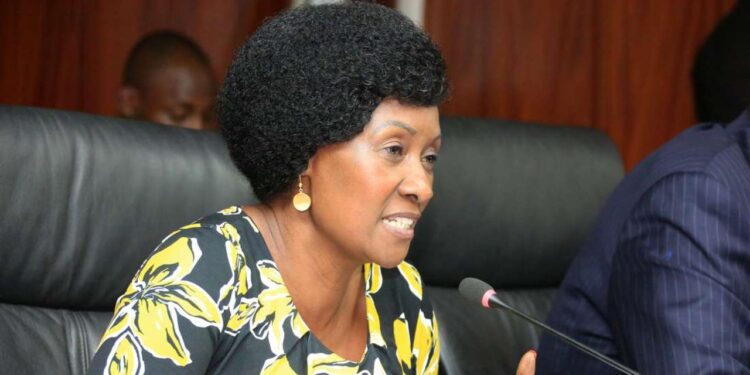Over 343,000 Registered Teachers Still Jobless Amid TSC Budget Gaps and Inequities.
More than 343,000 trained teachers in Kenya remain unemployed despite being registered with the Teachers Service Commission (TSC), Education Cabinet Secretary Julius Ogamba informed the Senate. The CS explained that while 343,485 teachers have officially registered with TSC, a significant number are still without jobs due to budgetary constraints and disparities in teacher deployment across the country.
Ogamba added that registration with TSC is optional, meaning the actual number of unemployed, qualified teachers could exceed the reported figure. He noted that the government acknowledges the magnitude of the crisis and is working on solutions.
While addressing questions raised by Nominated Senator Joyce Korir, Ogamba admitted the unemployment crisis is further complicated by unequal teacher distribution and limited financial resources. He did not provide a detailed breakdown of unemployment by graduation year but acknowledged the challenge was substantial.
Responding to Korir’s inquiry on whether some counties have capped teacher employment, Ogamba clarified that the variation stems from skewed budget allocations and geographical disparities rather than formal caps.
“The issue is not that counties have placed limits, but that available funds do not allow equitable hiring across the country,” Ogamba told the Senate.
Joint Efforts to Tackle the Crisis
The Ministry of Education, in partnership with the TSC, is spearheading coordinated recruitment strategies and lobbying for enhanced financial support. According to Ogamba, both institutions are determined to ensure a more balanced teacher distribution to tackle regional disparities.
“To mitigate the teacher unemployment crisis, the Ministry and TSC are enhancing collaborative recruitment efforts while lobbying for more budgetary allocations,” said Ogamba.
He reported that Kenya currently faces a shortage of 98,461 teachers nationwide. In Makueni County alone, 1,429 new teachers have been deployed in the current financial year, but many counties continue to experience dire staff shortages.
Makueni Senator Daniel Maanzo raised concerns regarding educational access in remote and marginalised regions. He pushed the Ministry to extend the school feeding programme, especially in drought-affected zones.
Read Also: TSC on the Spot: MPs Condemn Age Discrimination in Teacher Recruitment
In response, Ogamba stated that school feeding initiatives have already commenced in parts of Makueni and are set to expand. He highlighted the Ministry’s adoption of clean cooking technologies in schools as part of a sustainable development framework.
“We are already providing school meals in several areas of Makueni and are integrating eco-friendly cooking systems in school kitchens,” Ogamba said.
Vocational Training and Infrastructure Challenges
The Senate also examined challenges within vocational education, particularly curriculum misalignment between Vocational Training Centres (VTCs) managed by counties and Technical and Vocational Education and Training (TVET) institutions overseen by the national government. Nominated Senator Catherine Mumma stressed the urgency of resolving these inconsistencies and noted the critical lack of student accommodation across Kenya.
Ogamba explained that coordination efforts are ongoing through the Intergovernmental Relations Technical Committee and the Council of Governors. These aim to standardise curricula, align training quality, and support necessary legislative reforms.
The Ministry estimates that Kenya has 1,156 VTCs with over 141,000 trainees. Boarding demand is particularly intense in urban and Arid and Semi-Arid Lands (ASAL) regions. To address this, Ogamba noted, the Ministry is working with the African Development Bank, the German Development Bank, and utilising the National Government Constituency Development Fund (NG-CDF) to upgrade training facilities.
Read Also: Trainers from 20 North Rift TVET Institutions gets assessment, certification Through RPL
He added that Public-Private Partnerships (PPPs) are being encouraged to construct student hostels within school premises.
“We’re promoting partnerships with the private sector to build hostels on institutional land and expand capacity for boarding,” he concluded.
Over 343,000 Registered Teachers Still Jobless Amid TSC Budget Gaps and Inequities.



Discussion about this post